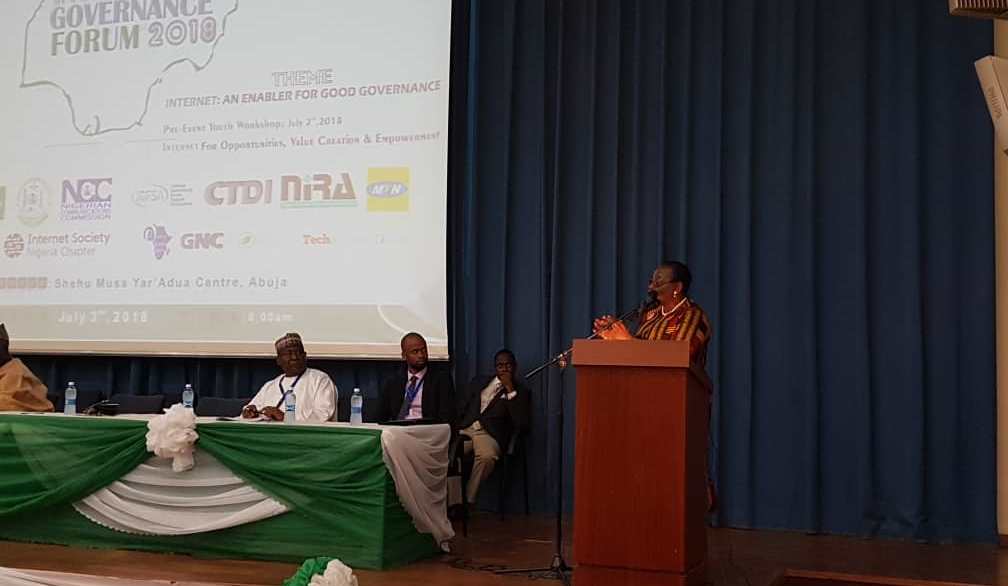A study on Ikole Local Government Area of Ekiti state has revealed a near disconnect of the 24 indigenous communities making up the area from the process of governance. It also shows that the people are hardly consulted by any layers of government on matters concerning development projects sited in the area.
It says “Inclusion of various groups in the society in development plan and budgeting process is yet to assume wider coverage of all constituent groups, especially with regards to involvement of women, the physically challenged, youths and those who do not play active roles in party politics”.
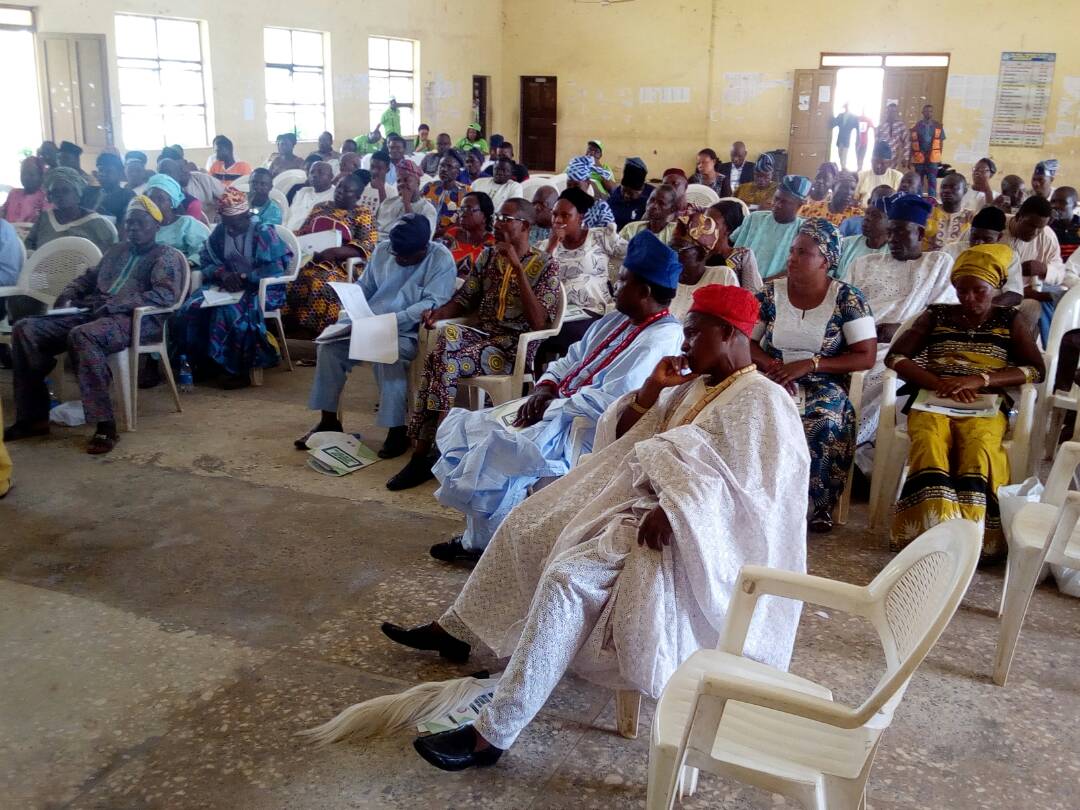
The research titled “Baseline Study on the Level of Inclusion of Community Members in Budgetary and Development Processes” also states that the people seem to have lost confidence in officials of the local government, saying that they are not responsive to their demands and yearnings.
Commissioned by Community Life Project (CLP) with support from Ford Foundation, the study urgently calls for the need to regain the people’s confidence. “Those in governance should try as much as possible to build or regain, as the case may be, the confidence of the people so as to make them participate actively”, it says.
In contrast however, the study which was presented by Mr Gbenga Adejare, a PhD student of Sociology at the University of Ibadan, says the people have “greater level of confidence in their traditional leaders and chiefs”.
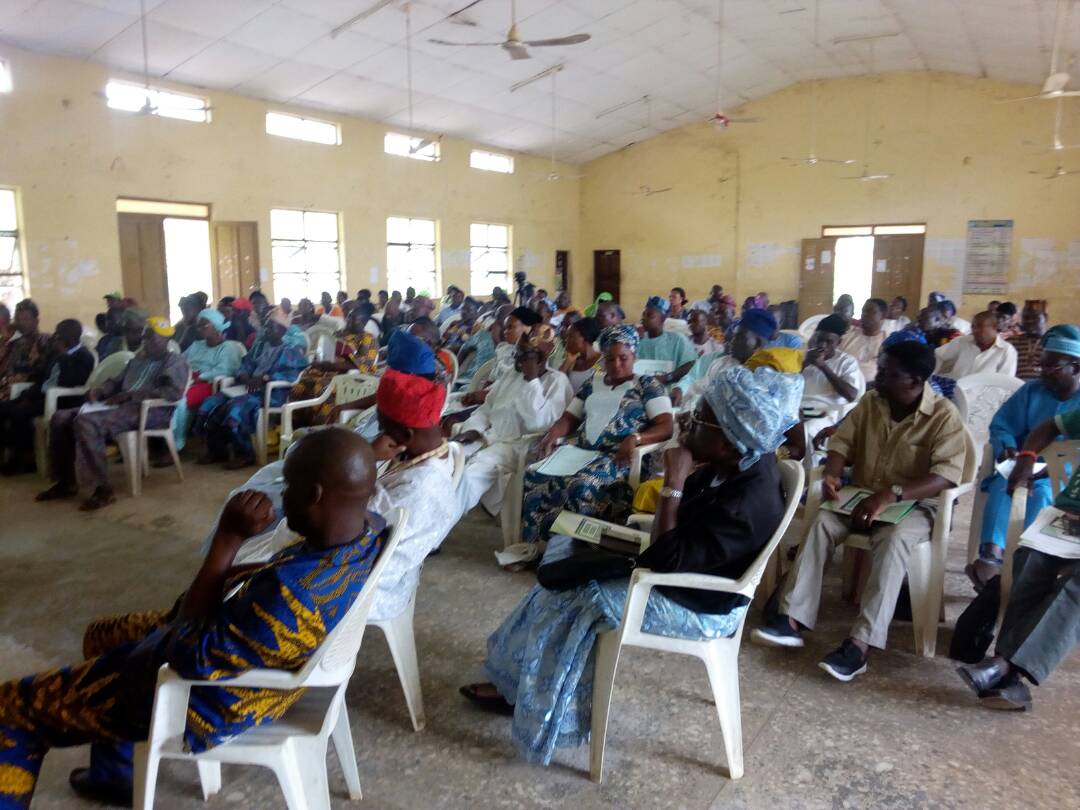
The study is of the view that “The barriers limiting the involvement of women in all strata of authority, especially at the traditional level should be removed.” “Since Ikole people are predominantly involved in agricultural activities, policy makers must tailor their policies to capture this demographic in the area”, it says.
While noting that “Youth unemployment is pervasive in Ikole and inhibits their full participation in all process of budgeting and governance”, it recommends “the need for intervention” to prevent “youth restiveness and other forms of urban unrest”.
Also observing that a high level of cooperation is necessary to “achieve sustainable development holistically”, the study however notes that “Inter-community rivalry makes it difficult for all the communities in Ikole to pursue development with a united front”.
“Inter-community rivalry must be minimised if not eradicated. This can be possible through re-orientation of people and projects. Lop-sidedness in the level of development across the communities should also be addressed”, it says.
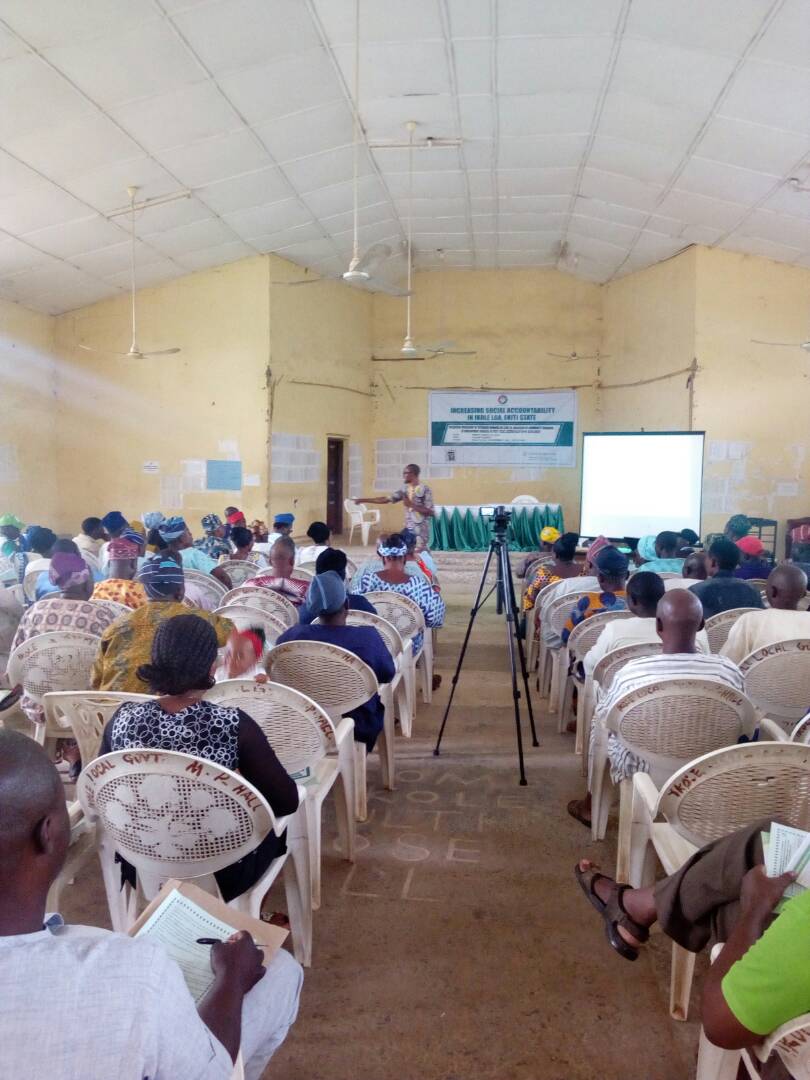
The study indicates that residents of Ikole “communities decry poor and inaccessible facilities like pipe borne water, roads and electricity which they see as very critical for the development of Ikole Local Government Area”. It posits that the challenge of inadequacy of electricity can be met by harnessing the resource of Itapaji dam which presently lies fallow.
“The dam can also be used to solve the problem of irrigation for farmers and water scarcity in various Ikole communities”. “The challenge of bad roads should also be tackled head-on with the required urgency”.
It is not all knocks. Although the area is made up of 24 communities with their respective sovereign kings, the study notes that “Ikole have good potential for development due to the availability of good and accessible agricultural land, agricultural produce, local markets and symbiotic cohesion to which 87.7%, 82.6%, 61.5% and 84.2% of the total respondents acceded to respectively.”
The people are also “moderately literate with, at least 3 out of 5 people possessing a least secondary school certificate and 4 out of 5 having at least primary school educational qualification”.
Intra-community cooperation, security and community cohesion are also held in high premium in Ikole. The communities “possess high potential for development given their level of communal cohesion and resilience and readiness to influence governance positively”.
Summing up the community’s travails at a workshop in Ikole to review the report, Mr Ayoposi Areola, former speaker of the Legislative Council says,“Projects are usually done here only at the behest of the governor, the people’s interest is hardly considered”. Quoting from the popular lines of Walter Rodney’s epic work, “How Europe Underdevelop Africa”, Areola contends that “Any development designed for me without me is not for me”.
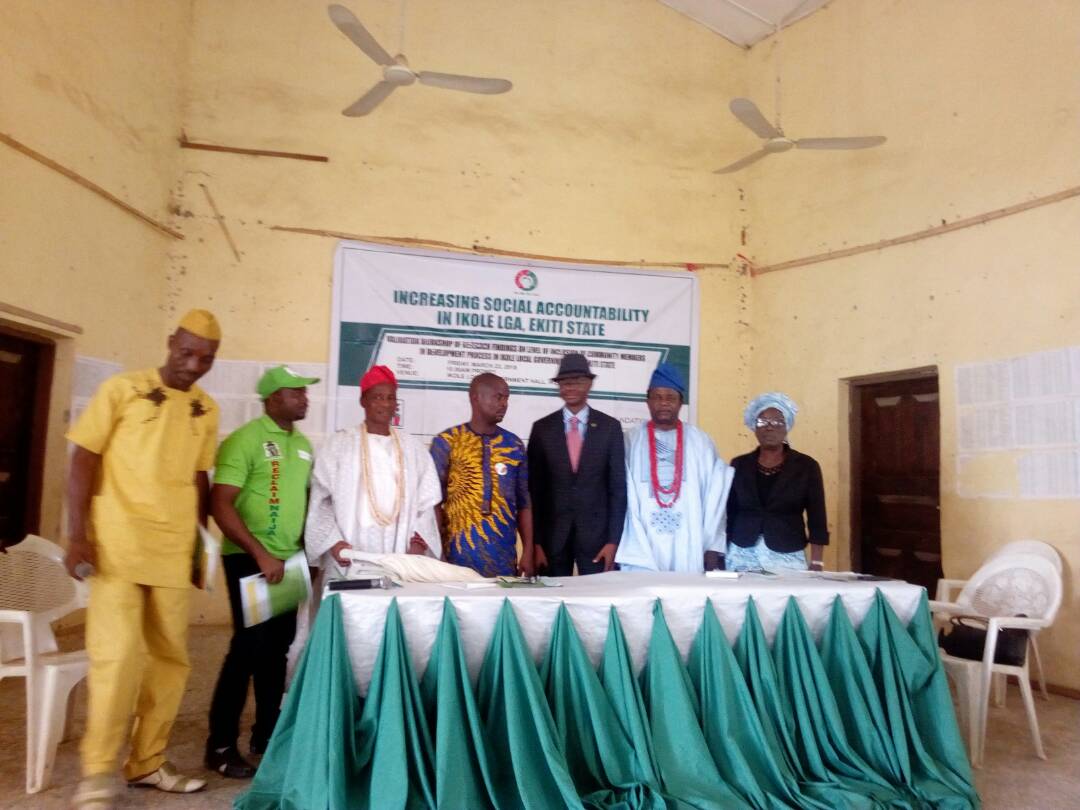
Appraising the study, Mr Leye Fagbemi, a retired permanent secretary, Ministry of Budget and Planning, Ekiti state says, “If there’s budget preparation without monitoring, nothing will happen. To make the budget sustainable, the people must be included. We also need to strengthen the capacity of the technocrats who will implement the budget”.
Mr Blessing Oluwole, public relations officer, Odooro Development Union is of the opinion that “local governments have become mere salary paying organs in Nigeria. While it is working in America, here it has almost collapsed. I’m just appealing that we need to do more to push our interest”
While commending the outcome of the study, Professor Abiodun Johnson Olatunji, director of Advancement and Linkage programmes, Ekiti State University, Ado Ekiti says, “We need to have political will to be able to implement it”. “The research finding is good but how will they implement it? There’s no sane government that will not embrace it. We need to identify resources that the people can latch on. It’s important we look at the area of value addition”.
Olatunji, also a Geosciences scholar however miffed at the absence of some vital geographical charts depicting the agricultural and other mineral resources available in Ikole LG that will facilitate any engagements with development partners.
Conducted by a team of researchers at the University of Ibadan led by Dr Akanle Olayinka, a Sociology scholar, the study was initiated by CLP to assess the resource/assets of communities in Ikole LGA. The focus was also to examine the perception of community members in the area about their resources/assets. It was muted to unveil the various forms of exclusion of the people and examine some challenges associated with the practice of inclusive governance. It was also done to explore available opportunities for development through inclusive governance in Ikole LGA.
According to the CLP Programme Officer, Mr Francis Onahor, several economic programmes have been initiated by different levels of government to end poverty and improve the economic conditions of citizens but these programmes have not resulted in any significant improvement in the living conditions of Nigerians.
One of the key failures of these programmes, he argues, is adduced to the “lack of participation and ownership of the programmes by grassroots communities who are supposed to be the ultimate beneficiaries of the programmes”.
“Programmes and projects are decided by government with little or no input from the communities. Communities are still not empowered enough nor understand their civic rights enough to place persistent demands on the government for consistent and efficient service delivery”, the CLP notes in its fact sheet.
If we must reverse this trend, the organisation says, “programmes aimed at promoting real development and improving the lives of the citizens and communities must include active participation of citizens in decision-making on public spending patterns and priorities. There is need to ensure that the voices of citizens and local communities are heard in deciding how, when and where public money is spent and what it is spent on at the local level”.
Onahor explains that Ikole LGA was being used as a pilot project so that the communities can design their master plan and engage government on the basis of their own charter of demands.”It’s important the people do a needs-assessment of the community and arrange to present it to government”, he says.
Present at the validation workshop to review the report of the Baseline Study include the Permanent Secretary, Ministry of Local Government, Mr Vincent Omodara, the Director, Local Government Administration, Mrs Adenike Olasheku, and Chairperson, Ikole LGA Mrs Abiola Olukayode who was represented by Mr Ayo Ogunbayi. Also at the event were the Elekole of Ikole, Oba Adewunmi Ajibade Fashiku who was represented by Chief Lanre Owoeye, the Olu of Itapaji, Oba Azeez Kareem Adebanjo and CLP’s Programme Officer, Mr Francis Onahor.
